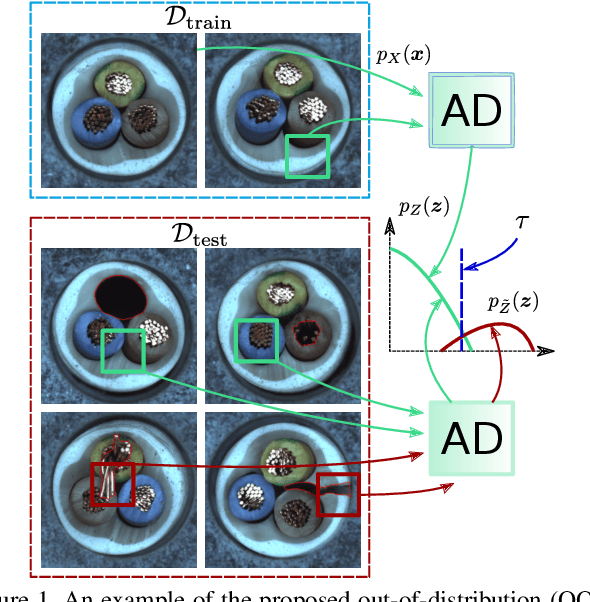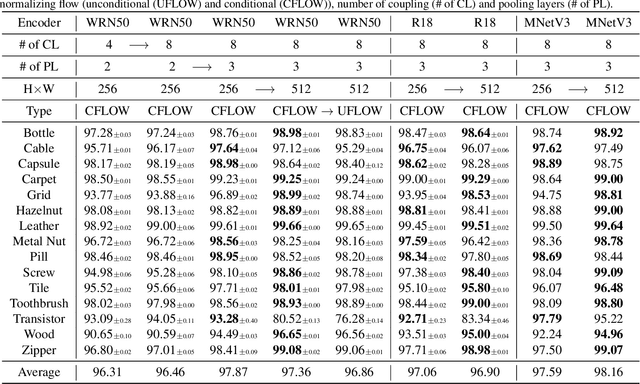CFLOW-AD: Real-Time Unsupervised Anomaly Detection with Localization via Conditional Normalizing Flows
Paper and Code
Jul 27, 2021



Unsupervised anomaly detection with localization has many practical applications when labeling is infeasible and, moreover, when anomaly examples are completely missing in the train data. While recently proposed models for such data setup achieve high accuracy metrics, their complexity is a limiting factor for real-time processing. In this paper, we propose a real-time model and analytically derive its relationship to prior methods. Our CFLOW-AD model is based on a conditional normalizing flow framework adopted for anomaly detection with localization. In particular, CFLOW-AD consists of a discriminatively pretrained encoder followed by a multi-scale generative decoders where the latter explicitly estimate likelihood of the encoded features. Our approach results in a computationally and memory-efficient model: CFLOW-AD is faster and smaller by a factor of 10x than prior state-of-the-art with the same input setting. Our experiments on the MVTec dataset show that CFLOW-AD outperforms previous methods by 0.36% AUROC in detection task, by 1.12% AUROC and 2.5% AUPRO in localization task, respectively. We open-source our code with fully reproducible experiments.
 Add to Chrome
Add to Chrome Add to Firefox
Add to Firefox Add to Edge
Add to Edge